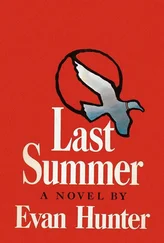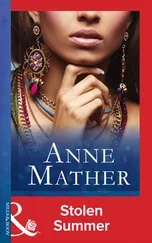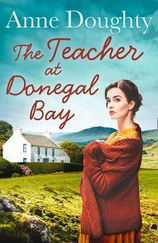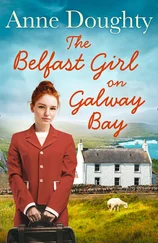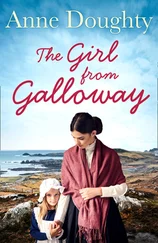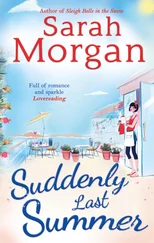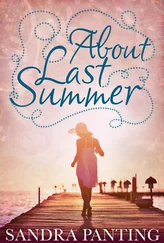The valley below was densely wooded. Only in the distance where I saw the gleam of water did the woodland give way to lush green meadows. Cattle were grazing there – angular, bony creatures, shaggy and hollow-chested, a far cry from the plump Frisians and the well-fed Shorthorns on the farms close to Anacarrig.
Apart from the villa, there were no other signs of human habitation, though there were trackways, criss-crossing the water-meadows and disappearing into the woodland. From where I stood, the path ran downhill and joined a more substantial causeway at the bottom. This stony track skirted the hill, cut through the woodland to the water-meadows and then disappeared again into more woodland away to my left.
Suddenly, a flash of light caught my eye. To my right, as far as the causeway reached before being enveloped in the woodland, a party of horsemen had just come into view and the sun glinted on their metal collars and the weapons they carried. They were moving fast. Moments later, over the thud of hooves, I heard the jingle of harness as they drew nearer.
Wanting to get a better look, I moved towards the rosemary hedge which bounded the vineyard. It was then I heard a rustle behind me. I turned and saw a young woman walking towards me, a wicker basket hung over one brown arm.
To be honest, I didn’t recognise her, but the moment she saw me, she held out her hands and smiled. With those grey eyes, it could be no one else. She seemed taller, less waif-like, more confident than I had remembered her. Pinned to the left shoulder of her pale olive green tunic was the brooch.
‘So you have come again as I prayed you would. You are so welcome. I hope the migraine troubles you no more.’
I was completely taken aback for the words she spoke were perfectly comprehensible.
‘Thank you, it went away when I slept. It hasn’t come back,’ I heard myself reply, to my amazement, as easily as she had spoken. And then I realised why: it was neither Italian, nor Greek, of which I have only a smattering – it was Latin. Not exactly the Latin of Tacitus or Pliny I know well, closer to the late Latin poetry I’d loved so much, and a form I could certainly follow. And it was clear from her cry of delight that she had understood what I had said.
‘But now you speak the tongue of Rome as I do. How is this? Come, let us sit in the shade. I have been waiting so long for you to come. But I had not thought we might speak words to each other that we might understand.’
She took my hand and led me to a stone bench below the colonnade. On either side of its fine-grained marble surface, two great wine amphora held single-petalled roses, one pink and one red. As I sat down I brushed against one of them and some petals fell, bright red splashes on the flagged terrace. I could see the veins in the rose, the grain in the quarried stone and feel the warmth of a brown hand holding mine.
Sitting there in the sunshine, her familiar-looking wicker basket at my feet, I felt both easy and excited. Easy, as with an old friend like Helen, whom I’ve known since our very first day at grammar school, and yet excited, like the first meetings with Matthew when it was so obvious to us both that all we wanted to do was be together.
There seemed so much we had to say to each other and yet a strange sense that we had shared so much already, as if we had been friends for a long time, but had been separated and now lived in different countries.
‘Please, how is it that you speak the Roman tongue?’
‘I learnt it at school in Ireland a long time ago.’
I thought my words sounded very stiff, rather like one of those guide books for eighteenth century travellers with phrases like: ‘My postilion has been struck by lightning.’ But if I was, it seemed not to bother her.
‘But we are in Ireland now, not far from the God’s well where I first met you. Do you not recognise this place? Over there to the west is Emain, and behind us is the town, Ard Macha, where the traders live. This is the villa of Alcelcius, my teacher.’
‘Is Alcelcius a Roman?’
I could not conceal my curiosity or my excitement. I so hoped she would say he was.
‘Yes, Alcelcius was a surgeon with the legions in Albi, but he came to Ireland disguised as an eye-doctor to spy for his general, who thought to conquer us. But Ireland conquered Alcelcius instead. He made his home here when he was discharged with honours.’
I laughed with delight. I knew it. I always knew it. I had been right after all. I was back at school, the soft voice of Miss Barbour in my ear. I had liked Miss Barbour very much, she was kind, hard-working and very fair. Without her, I would probably never have won my scholarship to university. But she would never accept a statement unless I could produce concrete evidence. I could still hear her steady, unperturbable tone.
‘Well, yes, Deirdre, I can see the reasoning behind your suggestion. The Romans were indeed adventurous, they do show a decided tendency to explore and document, but we have no evidence at all that they came to Ireland. It is true, Agricola did calculate that he could subdue the country with two legions, but the attempt was never made. As we all know, he shortly had to give his mind to more pressing problems.’
And with those quiet, bleak phrases, quite unknowingly she had snuffed out some possibility that was beginning to grow in my mind. I had felt such loss, such disappointment, and now suddenly that old hope returned.
‘And are you also Roman?’ I asked quickly, the words coming to me more easily now, in spite of my haste.
Her face, so full of pleasure and enthusiasm, changed instantly and I glimpsed a different Deara, vulnerable and ill at ease.
‘I know nothing of my family,’ she said uneasily. ‘I was brought up by the Lady Merdaine of Emain, but she died some four years ago, a few days before you first came to me. After her death I came to study with Alcelcius. He is such a good, kind man. He has taught me Latin and Greek, as well as medicine and the ways and customs of the Romans. Have you come from Rome?’
I shook my head and smiled.
‘No, I’m not a Roman. I’ve been to Rome once, many years ago, but there haven’t been Romans in Britain for a very long time. I think you and I live in different ages rather than in different places. Can you tell me what year it is, here, at this moment?’
The grey eyes widened and she nodded slowly.
‘This is the fourteenth year of the reign of Niall, son of Laoghaire, King of Tara and the tenth year of the reign of Morrough, son of Ferdagh, King of Emain.’
I shook my head and laughed, none the wiser.
‘That sounds like a long time ago. Presumably the Romans are still in Britain?’
‘Britain? Where is that, please?’
I tried to think what Britain was called in Roman times, but I just couldn’t remember.
‘Where Londinium is,’ I offered helpfully.
‘Ah yes, Londinium. Alcelcius served there before he went north to Eboracum. You know Londinium?’
‘Yes, I live and work there, but it’s rather larger now than it was in Alcelcius’s day . . . or rather, I mean . . .’
‘You mean that you have come from the future?’
‘It looks like it. I know quite a lot about the Roman Empire and I’ve read Agricola, but his world was about nineteen centuries before the time in which I live.’
‘So, how have you come? Why have you come?’ she asked earnestly, pressing my hand, as if my answer was of the greatest importance to her.
‘I don’t know. Why did you come to me six days ago when I was sitting crying with my migraine?’
She shook her head gently and smiled, that lovely warm smile which banished all anxiety.
‘My friend, for you the time was but six days, for me, four years and four months. It seems there is much we do not know. But some things are clear to us.’
Читать дальше
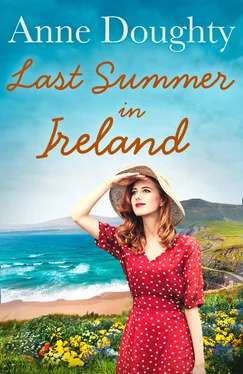
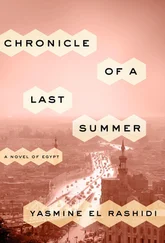
![Маргарет Миллар - Rose's Last Summer [= The Lively Corpse]](/books/384369/margaret-millar-rose-s-last-summer-the-lively-c-thumb.webp)
